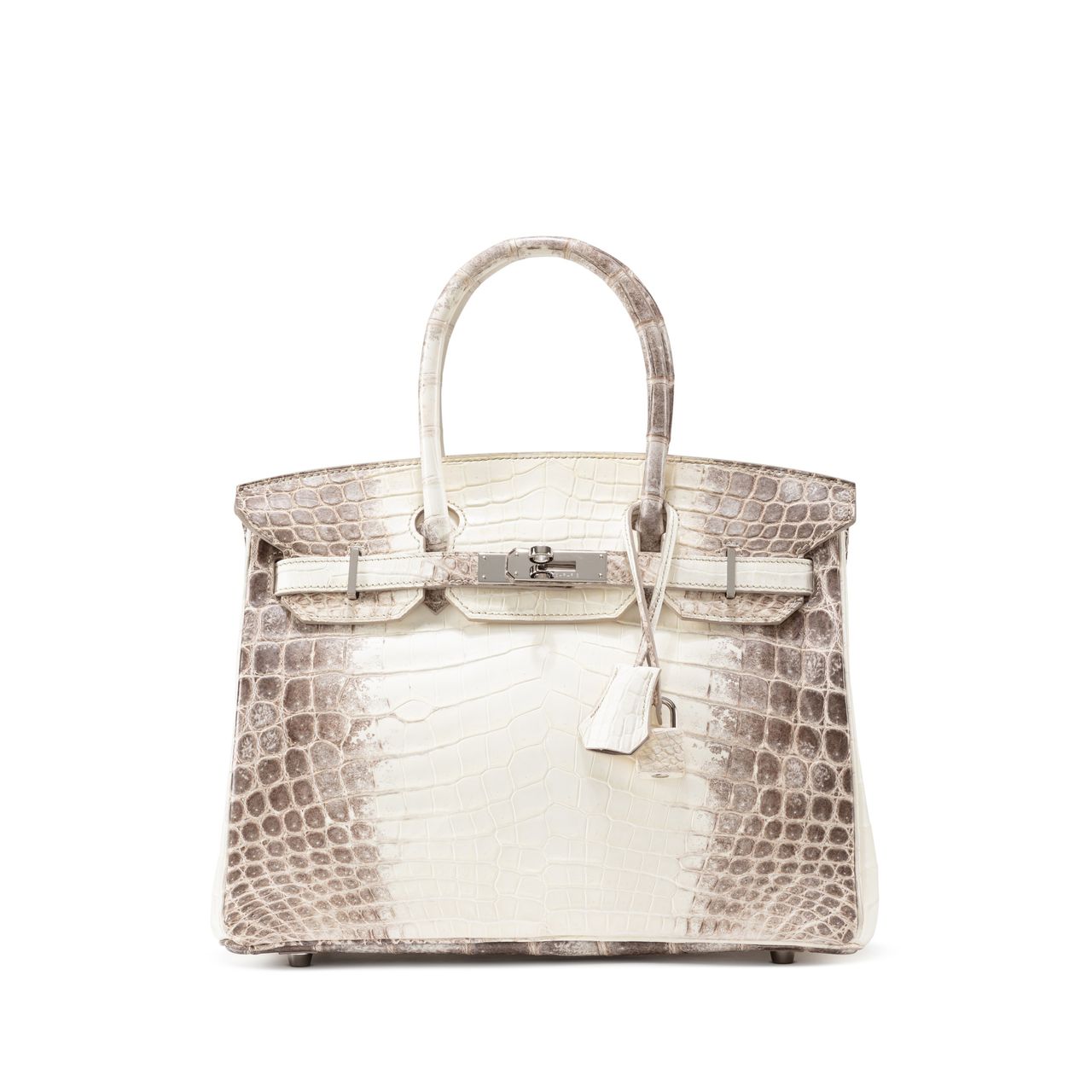Hermès Handbags Take the Spotlight at Auctions
It’s a new season for Hermès handbags at auctions.
Sotheby’s and Christie’s are offering a variety of purses online this month on the heels of a record-sale of a Hermès Himalaya Kelly handbag last week.
A Hermès Himalaya Kelly sold for €352,800 (US$353,400) at a Sotheby’s auction in Paris last week. It set a record for any luxury handbag sold at auction in Europe and the U.S., but fell short of the global record—a Himalaya Retourne Kelly bag, which sold for HK$4 million (US$510,000) last November at Christie’s in Hong Kong.
Touted as the “Holy Grail of handbags,” Hermès Himalaya Kelly is named after actress Grace Kelly, Princess of Monaco, who famously shielded her pregnancy using a Hermès bag. The bag has since become a status symbol, sought after by celebrities, socialites, and collectors alike. Orders for new versions, by appointment only, often take months or years to fulfil.
The one sold at Sotheby’s in Paris was produced by the French luxury goods firm Hermès this year. It’s one of an extremely small limited editions, offered only to VIP clients, according to Sotheby’s. Six bidders vying for the iconic crocodile-skin bag pushed the price to more than double its presale high estimate of €120,000.
In another online sale by Sotheby’s, a slightly older version of Himalaya Kelly, from 2021, has a starting bid of HK$1 million (US$127,388). Bidding will close on Oct. 13.
At Christie’s, a collection of more than 200 Hermès handbags from a private European collector, a longtime patron of Hermès, is being offered until Thursday with prices ranging from €500 to €14,000.
The collection includes several limited edition handbags and custom pieces. The highest priced lot is a Cognac ostrich skin Hermès Birkin bag from 2016, which carries a presale estimate between €12,000 and €14,000. A Vermilion Mouette leather Birkin, custom made in 2017, is offered for between €10,000 and €12,000. It has so far attracted seven bids with the highest bid at €10,000.
 Copyright 2020, Dow Jones & Company, Inc. All Rights Reserved Worldwide. LEARN MORE
Copyright 2020, Dow Jones & Company, Inc. All Rights Reserved Worldwide. LEARN MORE
This stylish family home combines a classic palette and finishes with a flexible floorplan
Just 55 minutes from Sydney, make this your creative getaway located in the majestic Hawkesbury region.
Continued stagflation and cost of living pressures are causing couples to think twice about starting a family, new data has revealed, with long term impacts expected
Australia is in the midst of a ‘baby recession’ with preliminary estimates showing the number of births in 2023 fell by more than four percent to the lowest level since 2006, according to KPMG. The consultancy firm says this reflects the impact of cost-of-living pressures on the feasibility of younger Australians starting a family.
KPMG estimates that 289,100 babies were born in 2023. This compares to 300,684 babies in 2022 and 309,996 in 2021, according to the Australian Bureau of Statistics (ABS). KPMG urban economist Terry Rawnsley said weak economic growth often leads to a reduced number of births. In 2023, ABS data shows gross domestic product (GDP) fell to 1.5 percent. Despite the population growing by 2.5 percent in 2023, GDP on a per capita basis went into negative territory, down one percent over the 12 months.
“Birth rates provide insight into long-term population growth as well as the current confidence of Australian families,” said Mr Rawnsley. “We haven’t seen such a sharp drop in births in Australia since the period of economic stagflation in the 1970s, which coincided with the initial widespread adoption of the contraceptive pill.”
Mr Rawnsley said many Australian couples delayed starting a family while the pandemic played out in 2020. The number of births fell from 305,832 in 2019 to 294,369 in 2020. Then in 2021, strong employment and vast amounts of stimulus money, along with high household savings due to lockdowns, gave couples better financial means to have a baby. This led to a rebound in births.
However, the re-opening of the global economy in 2022 led to soaring inflation. By the start of 2023, the Australian consumer price index (CPI) had risen to its highest level since 1990 at 7.8 percent per annum. By that stage, the Reserve Bank had already commenced an aggressive rate-hiking strategy to fight inflation and had raised the cash rate every month between May and December 2022.
Five more rate hikes during 2023 put further pressure on couples with mortgages and put the brakes on family formation. “This combination of the pandemic and rapid economic changes explains the spike and subsequent sharp decline in birth rates we have observed over the past four years,” Mr Rawnsley said.
The impact of high costs of living on couples’ decision to have a baby is highlighted in births data for the capital cities. KPMG estimates there were 60,860 births in Sydney in 2023, down 8.6 percent from 2019. There were 56,270 births in Melbourne, down 7.3 percent. In Perth, there were 25,020 births, down 6 percent, while in Brisbane there were 30,250 births, down 4.3 percent. Canberra was the only capital city where there was no fall in the number of births in 2023 compared to 2019.
“CPI growth in Canberra has been slightly subdued compared to that in other major cities, and the economic outlook has remained strong,” Mr Rawnsley said. “This means families have not been hurting as much as those in other capital cities, and in turn, we’ve seen a stabilisation of births in the ACT.”
This stylish family home combines a classic palette and finishes with a flexible floorplan
Just 55 minutes from Sydney, make this your creative getaway located in the majestic Hawkesbury region.






















